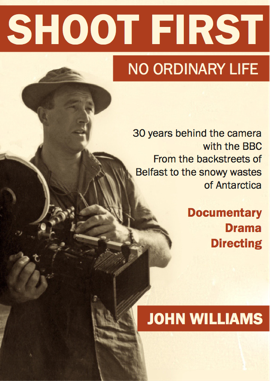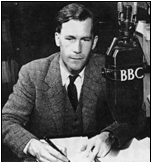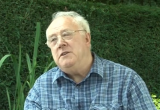‘The Colony’ (1963) is remarkable for being different in concept and execution from the typical BBC documentary of the time, let alone any of those dealing with immigrants in Britain and the general manner in which they were treated as objects to investigate and speak about. Its distinctiveness was a result of the particular vision of its creator Philip Donnellan, a figure whose oeuvre has been barely acknowledged by the BBC itself or by historians of the media.
Donnellan was a documentarist based in Birmingham who felt particularly dissatisfied with the BBC’s approach to its public service remit.
At issue was the nature of the ‘public’ it assumed to address and those it did not. He recalls in his unpublished autobiography that he was conscious of the ways in which British society began to change in the 1950s and 1960s as result of the post-war settlement. All about him was evidence of the challenge to traditional social divisions and deference located around authority and class. Confident explorations and celebrations of the vitality of working class life were found in the of the work of Richard Hoggart and Raymond Williams, in the films of Free Cinema, in the theatre and novels of the so-called ‘Angry Young Men’. This new world was there also in the presence and vitality of the culture of Black migrants. For Donnellan, and with honorable exceptions (see below), little of this vista was adequately registered by the BBC, which was not only limited in its coverage but in the way it spoke of and to its audience. This was governed by an unspoken consensual idea of how Corporation employees proceeded about their work: ‘An understood, though undefined, cultural, social and political consensus which fenced in the world we inhabited and gave boundaries to decisions of taste, style, and subject and to the choice of broadcasters who might handle them correctly and safely’.
From his first film ‘Joe the Chainsmith’ (1958), which ventured into the Black Country, Donnellan aimed to challenge this consensus by extending the subject and form of documentary. He sought out working people and under-represented social groups, the Irish, travelers and Black migrants. He created a space in his films that would allow them to speak for themselves and about their concerns and opinions without any overt intercession from the authorial tones and spurious objectivity of the BBC. Conceived in this vein, ‘The Colony’ is one of the enduring achievements of Donnellan’s career for the way in which he sought to represent the Black experience in Birmingham. As he recalled:
The intention was not to examine ‘colour prejudice’ it was certainly not our purpose to report on or review white people’s feelings of superiority: that was frequently implied in one news broadcast after another, and in the routine programmes that almost entirely ignored the black minority. Our aim was to present what it felt like to be a West Indian, in Britain, in Birmingham, and to offer West Indians the chance to describe in their own way the feelings they had about Britain and the British.
In order to fulfill this aim, Donnellan marshaled together a range of men and women who populate the film and give it its complex textures. They are seen and heard at home, in the workplace, at leisure, in prayer and participating in group discussions. Subjects speak directly to camera about their experiences, taking time to think about the insights they offer. In addition, a range of further, unidentified voices give testimonies that overlay the imagery that locates them in the day-to-day environment and interactions of the city. This mise-en-scène includes images of civic dignitaries at St Martin’s Church, busy streets, faces staring back at the camera (taking on a position of Black subjectivity), slum streets and walls daubed with racist graffiti.”
Paul Long (2011), ‘Representing Race, and Place: Black Midlanders on Television in the 1960s and 1970s’, Midland History. Vol. 36, No. 2, pp. 261–76






